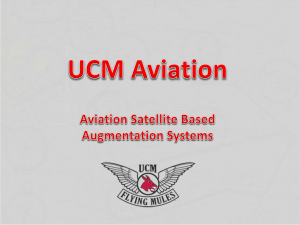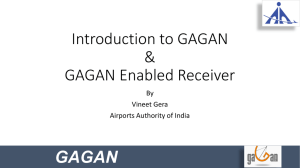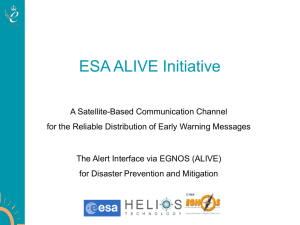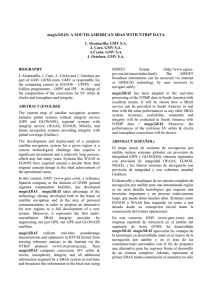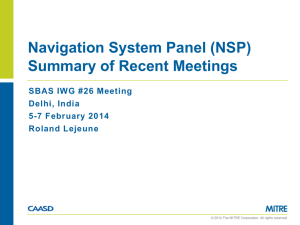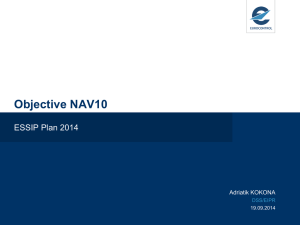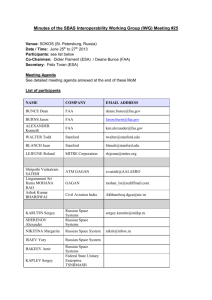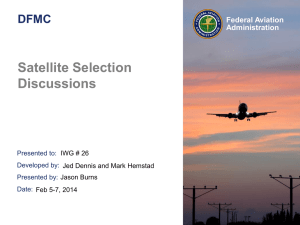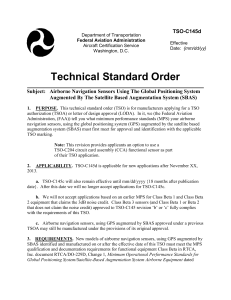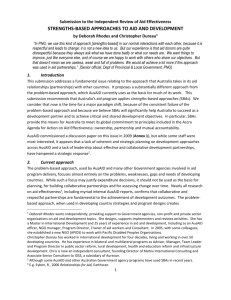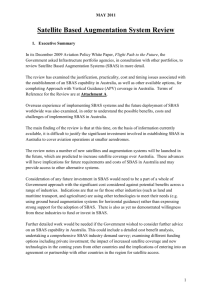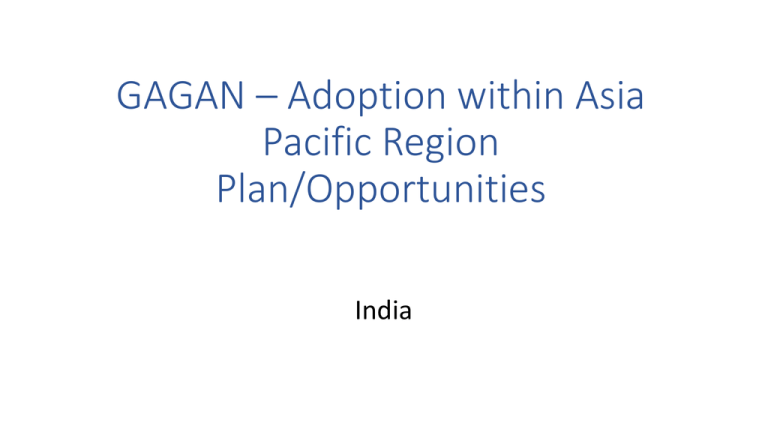
GAGAN – Adoption within Asia
Pacific Region
Plan/Opportunities
India
GAGAN Expands Satellite-Based Civil Navigation
APV 1
250 ft DH
50m VAL, 40m HAL
Background
GAGAN achieved RNP 0.1 certification in December
2013
• Type 2 message will be available in February
2014
• GAGAN signals available in Indian airspace
for en route navigation and non-precision
approaches
GAGAN system can be expanded in the region with
additional sites
• Software is designed to accommodate up to
45 reference stations (15 currently)
• Place single string reference station at
selected location
• Collect and analyze data from site and
concatenate to GAGAN data
• Determine system performance
improvement prior to site
installation/integration
Portable Data collection Unit
Projected Performance –with additional site in Mandalay Burma
Without Mandalay
With Mandalay
Expansion Study for GAGAN East Asia
2010 March 22
2010 April 26
LPV 200
APV-I
2006 December 5
= 100%
Availability
>= 99% >= 95%
< 50%
Ionospheric activity in the equatorial region
GAGAN Expansion Benefits
SBAS expansion and growth
– Preliminary analysis to add sites in neighboring countries show improved
performance
Economies are eager to collaborate
GAGAN service can be leased to neighboring countries
SBAS enables meeting ICAO Performance Based
Navigation requirement (by 2016)
Aircraft RNP and RNAV systems performance
requirements be defined in term of accuracy,
integrity, availability, continuity and functionality of
a particular airspace.
Low cost solution to attain SBAS capabilities; available
GEOs, processing & uplink stations
APEC GNSS 2011 Meeting Initiatives –
– SBAS regional expansion
FAA charter to expand SBAS globally
Raytheon continues to support the FAA on the charter
– Equatorial Region Solar Max Study
ICAO issued Standards for solar max data collection
ICAO initiative to standardize data collection – data can be shared
among countries
GAGAN is the only SBAS system that has enhanced algorithm specific for
equatorial region
SBAS Benefits
Efficiency
– Enables optimum routes independent of ground
navaids.
– Low incremental cost to expand regional system
into new areas.
– No new equipment required at airports to benefit
from SBAS.
– Reduces navigation system operating costs.
– All systems are ICAO compliant, thus one aviation
receiver works with GAGAN, EGNOS, MSAS and
WAAS.
Economic Growth
– Makes all weather air services available to
more communities.
– SBAS signal is also compatible with nonaviation receivers.
– Several million SBAS capable receivers
currently in use.
– Enables many new multimodal precise
navigation applications.
SBAS Benefits
• Safety
• SBAS provides other countries with a
sovereign means to monitor GPS.
• Improved situational awareness via low cost
SBAS capable avionics. Nominal vertical
accuracy is less than 2m(95%).
• SBAS 3D precision guidance can reduce
landing accidents 7-fold.*
• Higher Accuracy, integrity, continuity and
availability for both navigation and ADS-B
surveillance.
• SBAS provides seven 9’s of integrity
(probability of a hazard 1 in 10 million per
approach).
Example Curved Approach with
Continuous Descent
*Flight Safety Foundation, Flight Safety Digest, May-Jun 2003
© 2002 The MITRE Corporation. All Rights
Reserved.
Capacity
– Improves availability of RNP RNAV
routes, enabling safe reduction in
aircraft spacing.
– Offloads major airports by providing all
weather operations at secondary
airports.
– Covers all routes and airports within a
region – not limited by VHF broadcast
station range.
GAGAN INRES data for
•
•
•
•
•
•
•
•
Estimating Indian plate movements velocity
GCPL Network ( Ground Control Point Network )
Station Coordinate estimation, Update GCPL network
Demonstrated rapid GCP collection using GAGAN SBAS signal with an
accuracy of better than 1m with signal with an accuracy of better than 1m
with observation time of 10min
Densification of GCPs through GCPL Ph3 project for gpj future high
resolution Cartographic mission
Integrating GAGAN SBAS data with GIS for navigational litiapp lications
Atmospheric studies –Tropousing INRES data
GeoscienceGroupwillusethedataforearthquake
GeoscienceGroup will use the data for earthquake precursor study 27/01/2014


